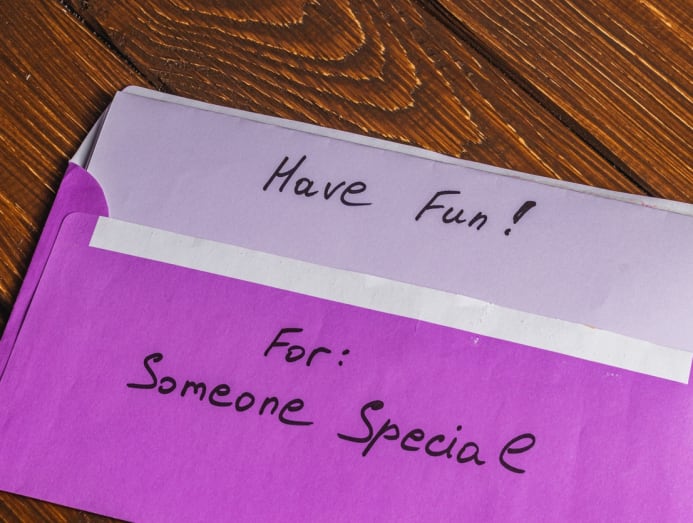We should call soon: Why long-distance friendships fade and how to keep them going
Like any relationship, it takes effort to maintain long-distance friendships. Just passively following your friend’s social media feed does not qualify as staying connected.

Maintaining long-distance friendships requires communication and consistency, experts said. (Illustration: CNA/Samuel Woo)

This audio is generated by an AI tool.
Adulthood is not just one phase of life but comes in stages. Its many facets can be overwhelming, from managing finances and buying a home to achieving work-life balance and maintaining healthy relationships. In this series, CNA TODAY's journalists help readers deal with the many challenges of being an adult and learn something themselves in the process.
Soon after my best friend headed overseas for university, we kept in touch often: frequent video calls, memes sent to each other by chat applications in the midst of lectures on campus, and daily snapshots of our lives while grumbling about inedible dormitory food.
As the humdrum of life marched on, however, these exchanges inadvertently began to get less frequent.
The times we checked in on each other dwindled and response times to text messages lengthened. Not to be dramatic but most ruefully of all, the spontaneous long conversations that characterised our in-person friendship vanished.
Although I speak from the vantage point of an undergraduate intern, my conversations with others revealed how my conundrum was not unique to my demographic.
Many people relocate when their families do, or for graduate studies or career opportunities. They and their loved ones confront a similar challenge of adjusting their pre-existing relationships to new realities. It must be a common occurrence, given that figures from the National Population and Talent Division’s 2024 Population in Brief report showed there were about 215,300 Singaporeans residing overseas.
Ms Ada Foo, 25, a Singaporean management associate who moved to Hong Kong for work, said: “At first, (adjusting to the new norm) felt a little disorienting.
"There’s definitely a pang of sadness knowing that spontaneous hangouts, coffee runs or last-minute deep talks won’t happen as easily.”
To spare myself from mourning the loss of a friendship with someone still alive and well, I spoke to some experts, who gave some insights into why long-distance friendships may fracture and what can be done to sustain and strengthen them.
WHY EVEN THE STRONGEST FRIENDSHIPS CAN FADE WITH DISTANCE
It’s easy to believe that a “strong” friendship would survive any distance, but that overlooks how friendships function in practice.
The psychologists and counsellors I approached all said that physical proximity is fundamental to forming close friendships. Repeated interactions from shared routines — such as at school or work, or as part of a photography interest group, or sharing overlapping gymming schedules — can foster closeness rather effortlessly.
Relocating removes that physical proximity.
Ms Lysia Tan, a clinical psychologist from psychological consultancy firm Mind What Matters, said: “Without face-to-face gatherings, there will be less opportunities to create new memories and grow friendships.”
Mr Isak Spitalen, a clinical psychologist from counselling service provider The Other Clinic, said that distance compounds this disconnection by putting friends on different timelines – not just different time zones, but different life stages and emotional rhythms.
For instance, as your friend turbocharges her career overseas, you might be starting a family at home. “Your diverging experiences can create a subtle sense of ‘we’re not quite in sync anymore', which slowly pulls people apart,” he added.
Connecting often feels more urgent for one friend than the other. While one person builds a new life abroad, the friend staying behind may not experience broader changes in his or her own life. This may mean one person longs for the connection more, causing mismatched expectations.
The experts agreed that combating the loss of routine and proximity requires a shift from a passive and organic connection to an active and deliberate maintenance of the relationship.
This entails planning, communicating and even possibly refreshing expectations.
THE CASE FOR TALKING ABOUT IT
To align expectations and set up a structure for the friendship, you may want to have an honest but low‑pressure chat with the friend about staying in touch.
Ms Qi Zhai-McCartney, the founder of private therapy practice Seeing Qi Therapy and Coaching, said it would be good to have a conversation before someone moves away.
“Ask about what the other person needs and on your part, offer what you can realistically provide, and vice versa. This helps you set expectations and avoid unnecessary hurt.
"For example, try saying ‘I want to stay close even when we don’t live in the same city. How can we make that work for us?’”
Mr Spitalen pointed out that communication styles can differ and that it may help to name your communication styles: “For example, you may say, ‘Hey, I know I take longer to reply sometimes, but I love hearing from you'. This helps the other person understand that it is not personal.”
He also said that these conversations are best approached with some flexibility.
“Sometimes, an agreement that feels too strict, like scheduled weekly calls, can really create pressure and might not work out as hoped,” he cautioned.
“It is often much better to have a light and open conversation about what feels achievable for both sides, as this approach tends to be more sustainable and enjoyable.”
Schedules and appointments aside, Ms Tan from Mind What Matters said that it does help when both parties have the intention to stay in touch once in a while. “Pre‑planned phone calls are usually found to allow for more meaningful and deeper conversations compared to ad‑hoc and haphazard ones.”
Of course, the communication should continue as necessary. For example, if you’re having a digital detox, it can be important to let your friend know and offer alternatives, or an estimated time when you expect to be monitoring your mobile devices regularly again.
Another example might be when you find yourself experiencing a burnout due to other factors. Mr Spitalen emphasises that being connected is not about replying to messages right away, but about making space for that friend in your life.
“Maybe a note to say ‘I’m a bit burnt out this week, but I’ll message you properly over the weekend’ can clear up confusion and keep the connection intact – assuming you follow through.”
STAYING CLOSE, EMOTIONALLY
From what the experts said, keeping it simple and regular helps.
Ms Zhai-McCartney emphasised: “Whether you’re trying to build a new life habit or to improve or maintain any social relationships, I always recommend this – consistency is more important than frequency or intensity.”
Apart from phone or video calls and text exchanges, low-effort options to keep the other person in the loop includes sending quick photos or short voice notes. “You don’t have to say a lot. A simple ‘I’m thinking of you today’ is meaningful,” she added.
In my own experience, it can be easy for long-distance friendships to be reduced to cycles of catching up and on this point, the experts suggested talking about things other than just your own life, such as by sharing ideas as well as funny or useful online content.
They also highlighted that it would be meaningful to remember each other’s significant dates and milestones.
“Couple it with a personal touch such as a gift or delivering something to your friend's address,” Ms Tan suggested. “It shows the genuineness and effort one puts into the friendship and makes the other person feel valued.”

Gift-giving need not occur only on significant occasions.
Ms Zhai-McCartney said: “I’m super old school – it feels really good to receive a physical piece of snail mail; a birthday card, a handwritten letter or a postcard from your travels is such a nice surprise in the era of convenience.”
That said, Ms Tan pointed out that passively following your friend’s social media feed does not qualify as staying connected.
“It tends to be a superficial exchange of information without full understanding of what the person may be going through,” she said.
WHEN LETTING GO IS HEALTHIER
Not every friendship, including long-distance ones, will last forever. As life goes on, people’s priorities, needs and values change.
If the relationship begins to feel one‑sided, or no longer reflects who both of you are, it may be time to let go.
Ms Tan recommended working through a few self‑reflective points before making that decision:
- How do you feel when you think about this friendship?
- Does it lift you up or weigh you down?
- Have you genuinely tried to maintain it and what obstacles keep cropping up?
- Could extending the intervals between contact ease the pressure, or is it time to allow the friendship to rest?
These guidelines can help with discerning if it is time to let the friendship go.
Mr Spitalen said: “Accepting this is part of growing up. Recognising that you have not done anything wrong will help you process it without guilt. You can still honour what the friendship meant without forcing it to remain the same.”
IT’S RARELY TOO LATE TO RECONNECT
If you miss someone, reaching out even after a long silence can rekindle old bonds.
It can be easy to overthink, to want to avoid troubling others, but Ms Zhai‑McCartney has this reminder: “It’s almost never too late. We tend to assume people don’t want to hear from us or we’ve offended someone, but what do you have to lose by being the one to break the ice?”
Mr Spitalen agreed that there is no need for a grand gesture. “A simple message like ‘I was thinking about you, how are you doing?’ or bringing up an old inside joke can open the door.”
From her experience, Ms Foo who moved to Hong Kong found the above advice to be true. “I feel that I can almost always pick up right where we left off. We always find ways to get back to each other in unexpected ways.
“The platonic love doesn’t fade; it just takes a different shape.”













